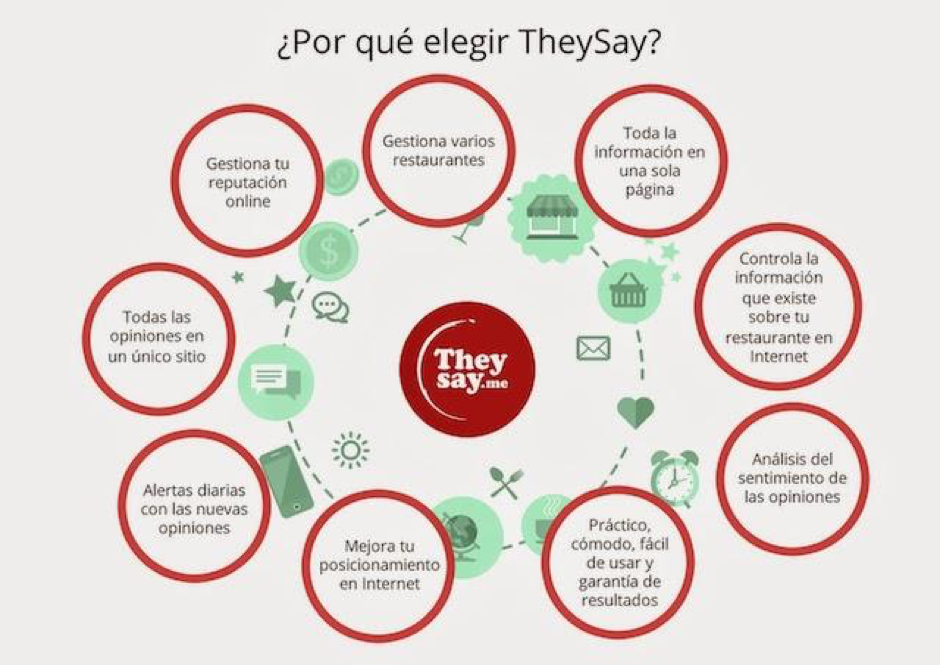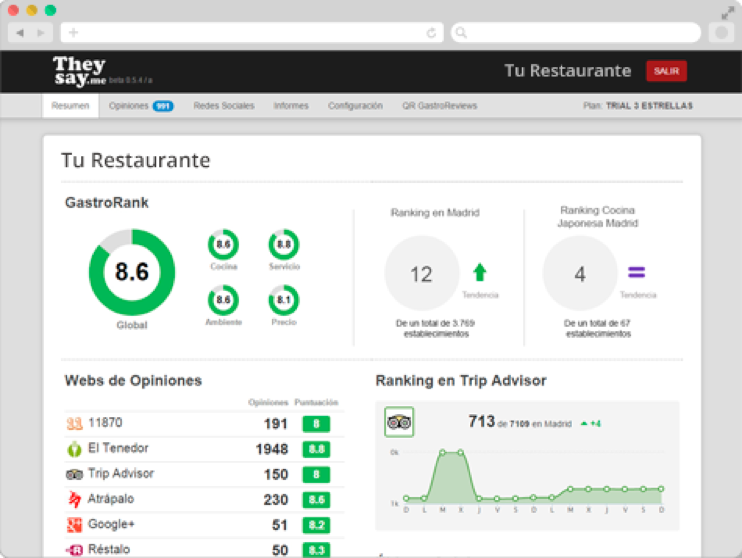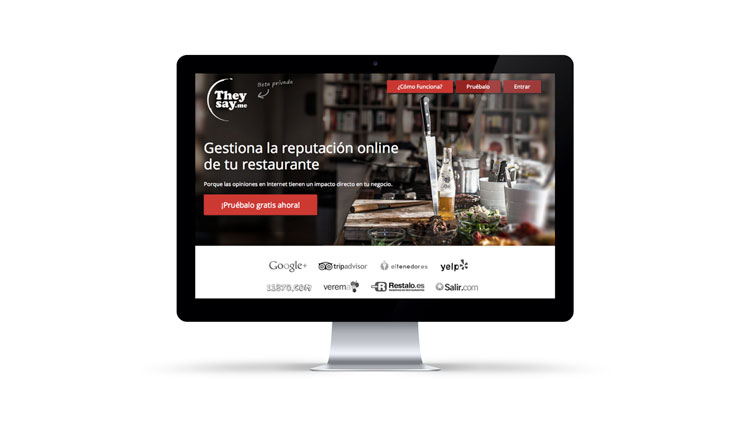At Theysay.me you work in analysing data and opinions from clients that can provide an important value for business. Why did you decide to bet for Big Data?
It actually developed from a problem that we encountered when starting to analyse all the information. When someone looks for an opinion about, for example, restaurants (which is what we mostly work for), we find that information grows at such a fast rate that it was very difficult to be able to get a reliable idea of what people thought of the restaurant in a reasonable amount of time. We find that there are thousands of opinions in different places, and at the end when you want to know what the people are evaluating; you need a huge amount of time.
At that moment, the most reasonable way is to gather all that information, capture it and process it to extract the knowledge, the main conclusions, and make it easy for clients and people to choose a restaurant. Also, you have to make it easy for restaurant owners to know what is being said and they can take the convenient measures to improve both their business and their online image.
What is the mistake that should not be made when working with Big Data?
Good question. Frequently we underrate the amount of information with which you are going to work. There is an inherent problem to managing these huge amounts of information which you sometimes have to repeat the process until you manage to optimise and extract the appropriate information. I think that Big Data is not only a matter of extracting information, introducing it into a large database and, from there, saying that you have done Big Data and producing four graphs. It is very important to successively analyse information until you extract the real knowledge in it.
I mean, somehow we do not stop in the first layer of information that can result when you have gathered large amounts of information, but making a lot of progress, getting deeper into the data, you can extract much more powerful knowledge that the one that you can gather during the first phase. I think that many times businesses stop in this first layer of information.
We have another problem also (which for me is one of the biggest challenges of Big Data), which is to interpret the information that results from the process. I think here is where there is a lack of profiles, of people prepared to interpret data. It is not only about processing, but there is also a human side: the part of interpreting all this information

Your project intends to help manage online reputation of restaurants, hotels, and other products. What type of information do you collect and analyse?
We first identify users. In a user, we identify the level of influence. This is very important for us, it is about how big or small this person’s network is online, to know the reach or impact that their opinion will have.
Later, we identify the opinion itself; we take the complete text of what the user has written on whatever medium (a social network, a webpage… we monitor over 70 web directories and social networks). We collect the complete information. This includes the date of the information, which is also very important. This is what we store and index in our database, and then process. We semantically analyse all the content to extract valuable information in opinions.
In the cases of chains of restaurants, hotels, or brands, do you think that large companies, by opening an API, contribute to enabling a Big Data project like yours to be carried out?
We already worked with the APIs of Instagram, Facebook, or Twitter. In an interconnected world, data is very important. The more open systems are and the easier it is to interconnect them automatically, much better for projects like ours. In the end it facilitates data collection (which is a process with a relatively scarce added value, as you are only gathering information). Collection is complicated because it needs a technology that you have to maintain and continuously update in order to gather all the information that you need. If they give you an API, the process is made easier and you can concentrate in other processes with further added value.
Something that we have also done is gathering data on consumption, or on how people spend money, on what, where, when… Moreover, cross-checking this data with the data of the person (completely anonymous) will give you highly valued information for businesses to identify market opportunities, or to identify reputation problems. Once you start having an ample set of information, then you will start crossing different variables to extract the knowledge and draw conclusions which will be useful to develop applications that will benefit people’s lives, or services and products that will help companies develop their business.

Your solution allows us to know, in real time, the opinion of a client online. Are companies ready to answer also in real time?
It depends on the type of business. There are companies that are preparing very well and invest resources to manage this new relationship with clients. However we are at a very initial phase; not everyone is ready for this. There are many people who do not know how to manage it.
Is there anything that Theysay.me can do to facilitate this? What can you tell them to encourage them?
This is where we come in with an additional layer of service. When we arrive for example to a restaurant and they tell us: ‘This is the opinion, but I do not know what to do with it. I almost do not know how to answer the client’. We have developed an expertise that we put at their disposal and we help them manage it if they want. It will not be done strictly in real time, because there is almost no one who wants to manage it in real time. At the end of the day people want a summary.
Follow us on @BBVAAPIMarket




























